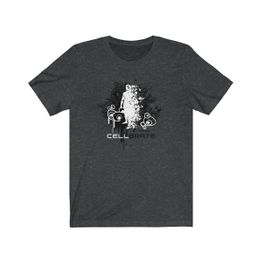Can the Microbiome Help Predict Immunotherapy Response?
Immune checkpoint inhibitors (ICIs) have made remarkable progress in combating cancer. Two ICIs which target the programmed cell death protein 1 (PD-1) and cytotoxic T lymphocyte protein 4 (CTLA-4) checkpoints have shown efficacy in various cancers. While ICIs can induce long-term responses, particularly in patients with late-stage, difficult-to-treat cancers, they remain relatively rare, and we do not fully understand why some patients respond and others do not. Thus, researchers actively seek new strategies to increase the number of patients who respond to these therapies.
Recent studies have sparked interest in the connection between a patient’s gut microbiota , the microorganisms and viruses in the gut, and ICI responses. However, we lack biomarkers, molecules that can be used to predict how the body will respond to treatment and identify which patients will have the best chance of successful ICI treatment.
To bridge this gap in knowledge, a recent study delved into the relationship between gut microbiota and ICI response using a cutting-edge technique called deep shotgun metagenomic sequencing. This revolutionary technology comprehensively identifies all the genes present in a biological sample. The researchers recently published the results of the study in Nature Medicine.
First, the researchers obtained samples from a phase 2 trial (NCT02923934) of patients with rare types of cancer. Cancers represented in the trial included upper gastrointestinal and biliary tumors, rare gynecological cancers, and neuroendocrine neoplasms. All patients had received combination PD-1 and CTLA-4 treatment. From a discovery cohort of 106 patients, the researchers quantified microbial levels used to optimize machine learning prediction models of ICI response and one-year progression-free survival.
Next, the researchers validated the microbial-strain responses using a validation cohort of 364 patients from six clinical trials. They discovered that the gene signatures help across cancer types when considering similar ICI treatment schedules.
The study suggests a paradigm shift in our understanding, indicating that ICI treatment regimens represent a more crucial factor in gut microbiome diagnostics than cancer type. Given these groundbreaking findings, collecting samples to analyze gut microbiota compensation could potentially revolutionize our ability to predict ICI responses, especially for patients with rare cancers.
Sources: Science, Nat Medicine


















































